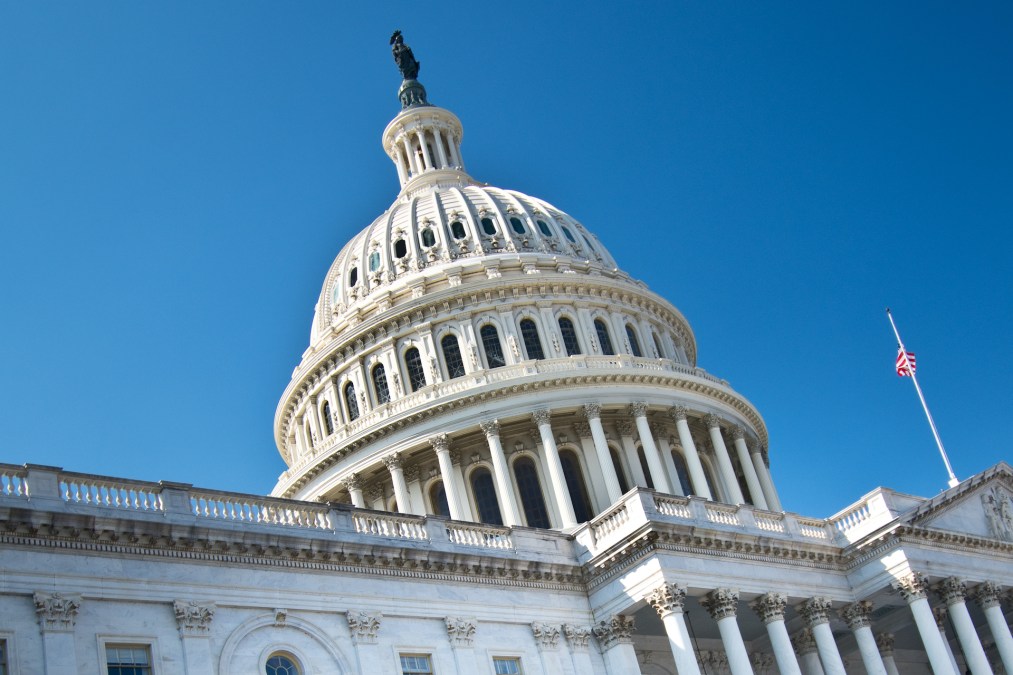House panel advances bill to supplement NIST funding with public-sector partnerships

A bill passed by the House Committee on Science, Space and Technology on Thursday aims to supplement the National Institute of Standards and Technology’s funding levels by creating a nonprofit foundation to fuel private-sector and philanthropic partnerships.
The bipartisan Expanding Partnerships for Innovation and Competitiveness (EPIC) Act (H.R. 8673) would establish and provide seed funding for a Foundation for Standards and Metrology focused on helping the Department of Commerce agency collaborate with academia, industry, and other organizations.
It takes a page from similar nonprofits that already exist to create such public-private partnerships in other federal science agencies, such as the National Institutes of Health, the Centers for Disease Control and Prevention and the U.S. Department of Agriculture.
“It’s just a proven model and one that NIST could absolutely benefit from in the face of what we have evaluated on this committee [as] their significant underfunding, particularly heading into the next budget year,” Rep. Haley Stevens, D-Mich., the lead sponsor of the bill, said at the Committee on Science, Space and Technology markup.
The proposed legislation comes after NIST saw a roughly 12% decrease in its fiscal year 2024 appropriations, a far cry from what Congress authorized for the agency in the CHIPS and Science Act. NIST Director Laurie Locascio told the same House science panel in May that further cuts to the agency’s budget proposed by House Appropriations Committee Republicans would result in reductions in staff.
“The expectation is that the foundation will be a substantial contributor to financial support for NIST and its mission,” Rep. Jay Obernolte, R-Calif., who co-sponsors the bill with Stevens, told FedScoop after the markup.
Obernolte was optimistic about the prospects of the legislation to advance on the floor, pointing to broad bipartisan support in committee. “I think we have sufficient legislative runway left in the year to get this out of the House,” he said.
The bill from Stevens and Obernolte is also attracting Senate interest. In an interview after the hearing, Stevens told FedScoop she’s been working with Sen. Chris Coons, D-Del., whose staff was at the markup. “I feel good about it being bipartisan and bicameral,” she said.
A spokesman for Coons said their office is interested in the bill and speaking with potential allies about it.
The legislation, which was introduced June 7, has already moved quickly and has the support of companies, academic institutions, nonprofits, and other organizations. Stevens said Thursday the bill currently has the endorsement of over 40 organizations.
Those include Microsoft, Carnegie Mellon University, the Semiconductor Industry Association, and the Center for Democracy & Technology, according to a release from Stevens at the time of the bill’s introduction. The legislation also has the support of the past four NIST directors: Walter G. Copan, Willie E. May, Patrick D. Gallagher and William A. Jeffrey, according to that release.
Under the legislation, the Foundation for Standards and Metrology would be operated by a board of directors. To ensure the integrity and accountability of the foundation and that board, Stevens said at the hearing that the legislation would create governance guidance, standards for conflicts of interest, and transparency requirements.
“It’s certainly going to have the guardrails in the transparency and the accountability that other foundations have,” Stevens told FedScoop after the hearing. The democratic board will include members from academia, the private sector, and other stakeholder groups, and will align itself with NIST’s mission, she added.
Stevens also noted that while the recent funding cuts have made the need for such a foundation “more dire,” the legislation isn’t being proposed because of that decrease.
“The approach of adding a foundation to NIST is a very viable approach to accelerating our innovation agenda,” Stevens said.
During the markup, Obernolte underscored NIST’s importance as a leader for artificial intelligence testing and evaluation standards, highlighting its January 2023 AI Risk Management Framework and continuing work on the technology.
“We need to get them the resources that they require to do a good job, and yet, as we all know, the regulatory environment is very challenging,” Obernolte said. “So taking the step of adding a nonprofit foundation to help them in their work makes complete sense.”
Before advancing legislation, the committee agreed to an amendment form Stevens and an alteration to that amendment from Rep. Bill Posey, R-Fla.
Stevens said her amendment included “administrative and clarifying changes,” language to strengthen conflict-of-interest safeguards and language to “ensure the foundation is functionally a separate entity from the institute to ensure accountability for taxpayers.” Posey said his amendment limited connection between foreign countries and entities of concern and the foundation.
The committee also approved three additional bipartisan bills by voice vote Thursday.
Those pieces of legislation would authorize the National Science Foundation and USDA to collaborate on research and development for agricultural technologies (H.R. 8613), direct the Department of Energy to support specific R&D areas for supercritical geothermal systems (H.R. 8665), and establish milestone-based development for nuclear fuel projects at DOE (H.R. 8674).
This story was updated June 13, 2024, with comments from Rep. Stevens and a spokesperson for Sen. Coons.



